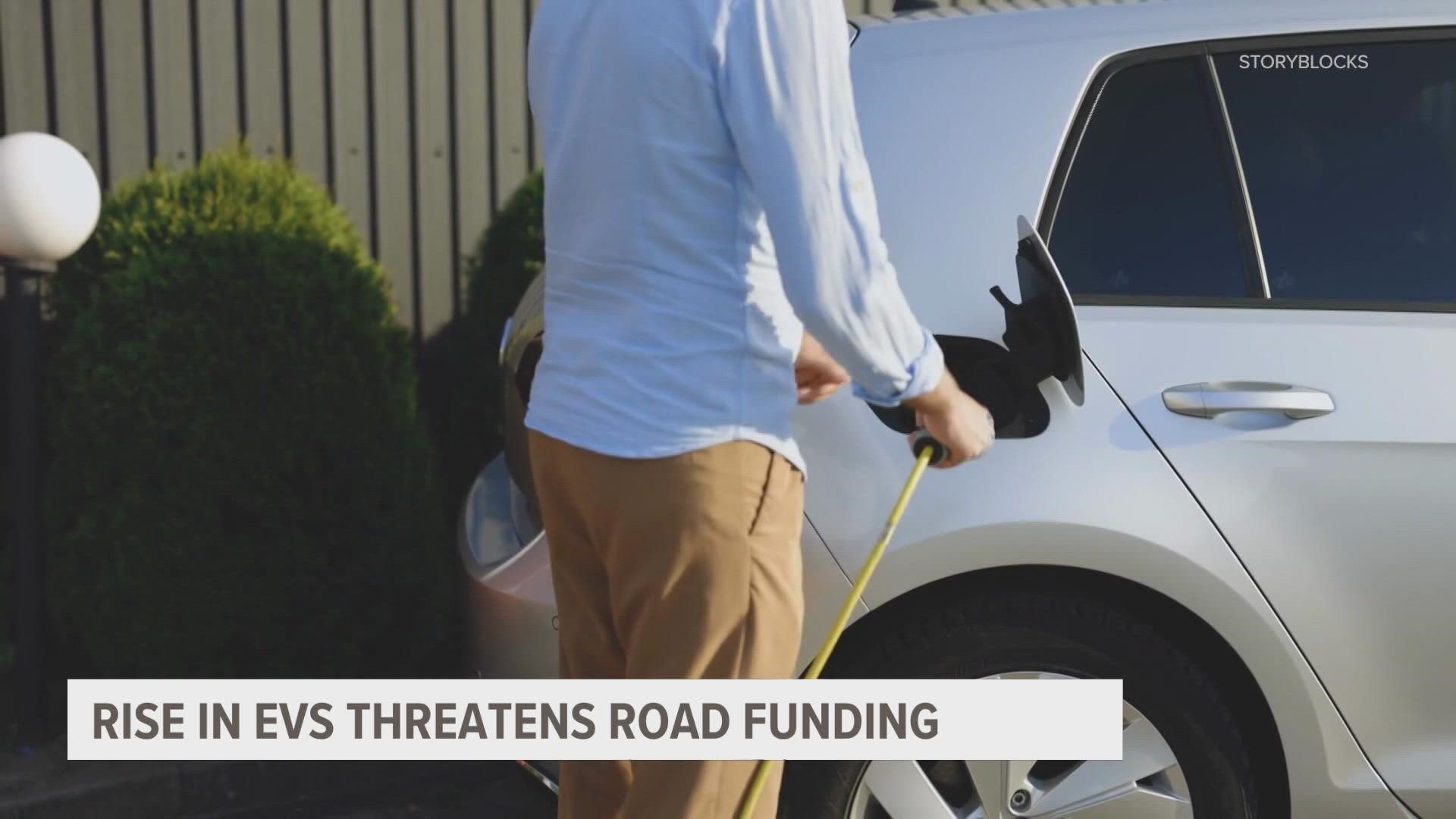GRAND RAPIDS, Mich. — A lot of Michiganders don't drive electric vehicles right now, but state officials say more will within the next decade.
This is causing Michigan county road agencies and industry stakeholders to raise concerns about long-term funding for our roads.
A newly-formed coalition called Coalition on Electric Vehicles and Transportation Revenue spoke in downtown Lansing Tuesday morning to announce a new report from Anderson Economic Group, “The Impact of Electric Vehicle Adoption on Road Funding in Michigan,” as well as to discuss solutions to what they're calling an 'approaching crisis.'
The coalition includes:
- County Road Association of Michigan
- Michigan Transportation & Infrastructure Association
- Michigan Association of Counties
- Michigan Municipal League
- Michigan Public Transit Association
- Michigan State Chamber of Commerce
- Michigan Townships Association
According to the coalition, EV drivers don't pay any state or federal gas tax, meaning they pay 70 to 80% of what a typical driver pays in road taxes.
This reduces the pot significantly as it flows to the counties.
According to the Michigan County Road Association, between 2019 through 2021, the EV transition represented a $50 million shortfall in Michigan Transportation Funding and this directly impacts the Kent County Road Commission (KCRC).
"The impact on the Kent County Road Commission is about $340,000 a year," said Rob VerHeulen, Board Chairman of the KCRC.
By 2030, the road commission is expected to lose approximately $1.5 million per year because of EV transition.
"No one is proposing a tax increase but rather, the principle is, if you use the roads, you should pay your fair share and that is not a tax increase, that's simply equity. And I think that makes it much easier to address from a legislature standpoint," said VerHeulen.
By 2030, Michigan could be left with an annual shortfall of $90 million.
The coalition is offering a few potential solutions including:
- Annual flat registration fees
- Millage-based user fees
- Per kilowatt-hour fees
- Miles at registration fees
- Tolling fees
The coalition is asking the Governor and the legislature to launch an EV road collection revenue pilot project that can begin collecting EV road and transit revenue proportional to their use of the road and transit network.
►Make it easy to keep up to date with more stories like this. Download the 13 ON YOUR SIDE app now.
Have a news tip? Email news@13onyourside.com, visit our Facebook page or Twitter. Subscribe to our YouTube channel.

